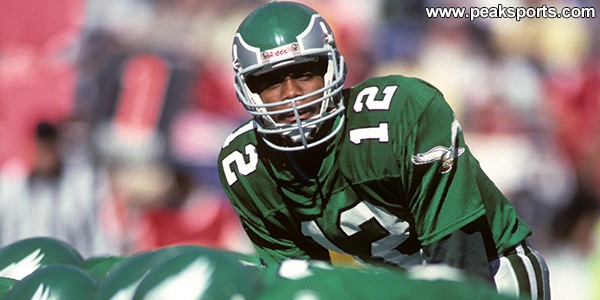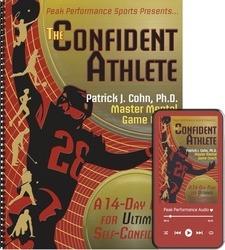
How Perfectionism Affects Sport Performance
What are your thoughts on perfectionism for athletes? In your opinion, should the goal be to have a perfect performance? So many athletes are confused by the perfection.
Is perfectionism good or bad for athletes? Depends on who you ask…
Some pitchers want to pitch a perfect game every time they take the hill. Gymnasts want a perfect score on every routine they perform. Hockey goalies want to have a perfect shut out every game.
The above statements revolve around wants. The most devastating aspects of perfection are demands:
“I have to pitch perfectly, or I won’t get into a top college.”
“I have to perform the perfect routine, or my parents will be angry with me.”
“If I am not perfect in goal, it means that I’m letting down the team.”
When you demand perfection, you are not on the right path…
Here’s how perfectionism hurts performance:
You arrive at the competition site an hour or so before the competition. Your perfectionist thoughts have already started. It’s sink or swim, win or lose, succeed or fail. With all-or-nothing thoughts, there is no in between. It’s either one or the other.
Instead of winning or losing, the perfectionist adopts the mindset “Don’t lose.”
A perfectionist competes with the mindset of “Don’t blow it”, “Don’t mess up” or “Don’t embarrass yourself.”
Perfection is steeped in negativity. It’s based on avoiding mistakes and mishaps.
The confusing part is that some athletes who label themselves as “perfectionists” aren’t perfectionists at all.
For example, Los Angeles Lakers guard Alex Caruso considers himself a perfectionist but read into how he describes himself:
CARUSO: “Obviously I’m a bit of a perfectionist so there’s a couple plays here and there, especially in the Portland game, that I wish I could do over and do better. Every time I’ve gotten an opportunity in my career, I’ve risen to the occasion, and there’s something in me, that competitive spirit, that desire to be great, the desire to do everything right that just rises to the occasion given the opportunity.”
Is that perfectionism or is it striving to be better and better every time he plays a basketball game?
Let’s examine Caruso’s statement: “There’s a couple of plays that I wish I could do over again and do better.” In this instance, Caruso is talking about learning from his mistakes.
A perfectionist would say, “I made too many mistakes. I messed up badly. I don’t know what’s wrong with me.”
Let’s look at another statement from Caruso: “There’s something in me, that competitive spirit, that desire to be great, the desire to do everything right that just rises to the occasion given the opportunity.” By the “desire to do everything right,” Caruso is referring to doing the little things right to improve his overall game.
A perfectionist would not talk about desire. A perfectionist thinks in absolutes, “I have to do everything right.”
You want to look at what is helpful and what hurts your game when it comes to perfectionism…
What’s Helpful About Perfectionism
Perfectionists are very motivated, have a strong work ethic, are committed to their goals, and have a desire to learn and improve.
A good mindset for practice, which is their strength. In addition, coaches love to work with this type of athlete because they have a strong work ethic and are very coachable.
What’s Unhealthy About Perfectionism
Perfectionist have fragile confidence and lose confidence quickly not performing well. They expect to perform perfectly (make zero mistakes), which leads to performing tight. They are very self-critical of their performance and tend to dwell on mistakes. Often, perfectionist athletes are stuck in a practice mindset, which their ability to play freely.
Related Articles on Mental Game:
- Perfectionism Hurts Athletes During Competition
- Top 10 Challenges of Perfectionism
- How Perfectionism Can Hurt Performance
*Subscribe to The Sports Psychology Podcast on iTunes
*Subscribe to The Sports Psychology Podcast on Spotify
Download a free sports psychology report to improve your mental game!
Learn more about our one-on-one mental game coaching.
The Confident Athlete

“The Confident Athlete” consists of 2 audio programs that include 14 days of confidence fueling exercises and a simple to follow workbook that guides you through the 14 days, helps you apply the strategies, and customizes the exercises to your personal needs.
Let me help you put a stop to the confidence leak. You can learn to have greater levels of confidence in competition than you do in practice by identifying the specific ways you undermine your own confidence and how to convert your practice confidence into COMPETITIVE CONFIDENCE.
“The Confident Athlete” is a ground-breaking system to teach you how to think like a champion and have ultimate self-confidence every time you step on the playing field, court, track, or course. The confident athletes was developed for any athlete – junior to professional –that wants to gain confidence. However, coaches and sports parents can learn how to teach others to perform with ultimate confidence. Use my program if you want to bust a slump or just wanting higher or more consistent levels of self-confidence.
